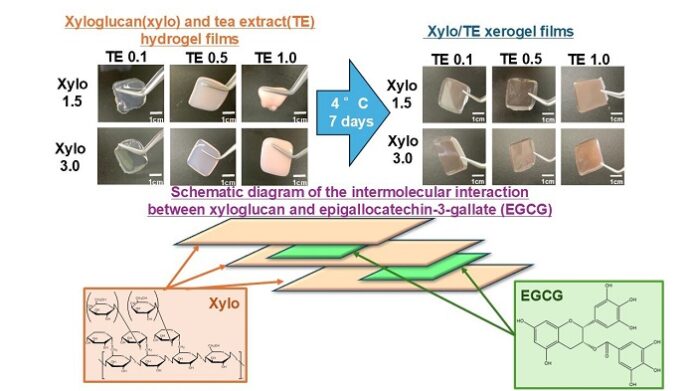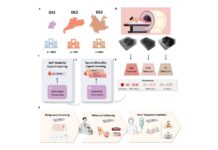

Scientists at Tokyo University of Science (TUS) have developed an innovative, green tea-infused mucoadhesive film to provide relief from oral mucositis, a painful side effect experienced by 30–40% of cancer patients undergoing chemotherapy or radiation. This groundbreaking research, published in ACS Omega, aims to improve patient comfort and quality of life during cancer treatment.
Led by Professor Takehisa Hanawa and his team, the study introduces a thin, flexible film enriched with catechins from green tea, known for their potent antioxidant and anti-inflammatory properties. The film adheres directly to affected areas in the mouth, delivering targeted relief and offering a more convenient, cost-effective alternative to traditional mucoadhesive tablets.
“Our goal was to create a formulation that is easy to use and helps alleviate the discomfort and eating difficulties caused by cancer treatments,” said Prof. Hanawa.
The researchers utilized xyloglucan (Xylo), a polymer derived from tamarind seeds, combined with green tea extract (TE) containing over 75% catechins, including the powerful epigallocatechin gallate (EGCG). This combination forms a gel with strong mucoadhesive properties, making the film suitable for prolonged application in the mouth.
Two types of films were developed: hydrogels, which softened at body temperature, and xerogels, which were firmer and more durable. The xerogel films demonstrated superior adhesive strength, matching or exceeding commercially available products. Tests showed that the films adhered well under simulated oral conditions and released EGCG over time, enhancing their therapeutic potential.
“Xylo/TE xerogel films exhibited high strength, rapid water absorption, and adhesion forces comparable to commercial products,” Prof. Hanawa noted.
As reported by medicalxpress, this project aligns with the UN Sustainable Development Goals (SDG 3 and SDG 9) by advancing health and well-being through innovative research. Moving forward, the team plans to refine the film’s design and conduct safety and efficacy studies, aiming to offer a transformative solution for managing oral mucositis in cancer patients.























